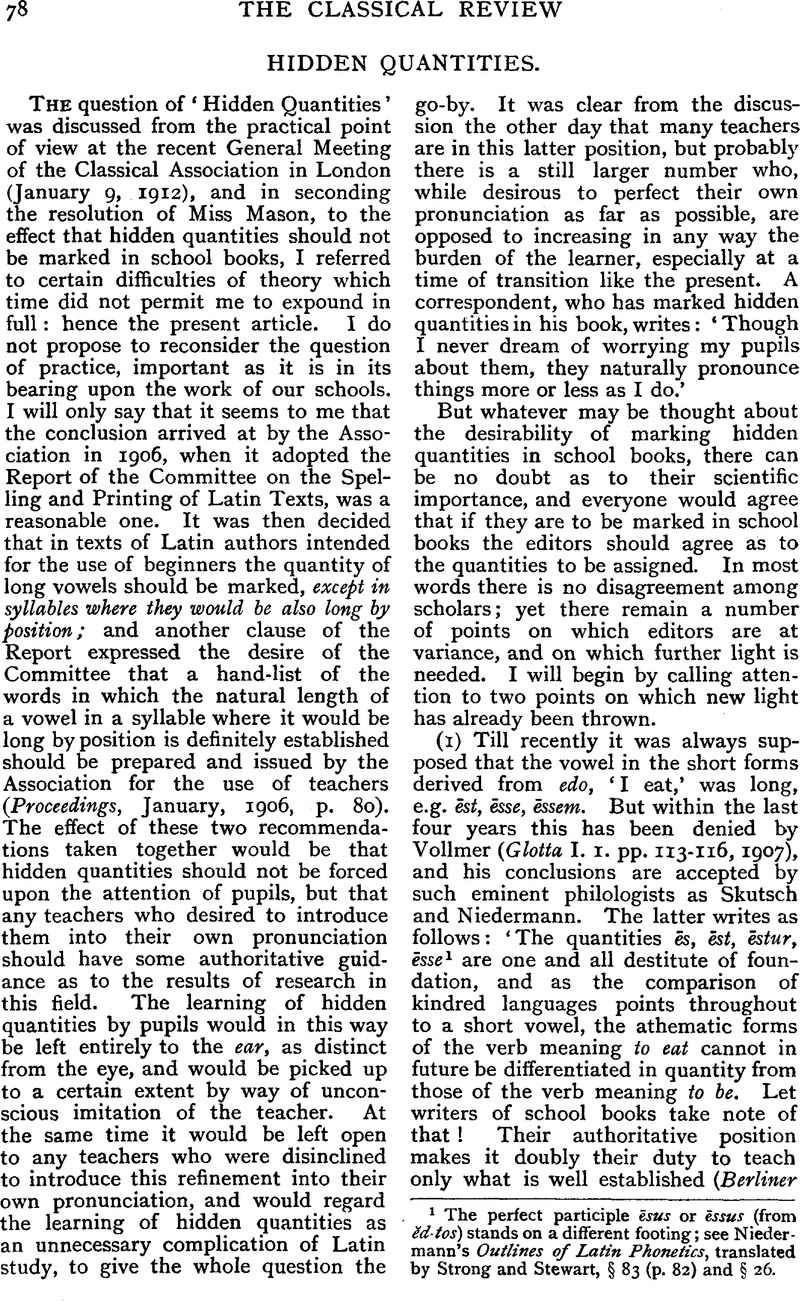No CrossRef data available.
Article contents
Hidden Quantities
Published online by Cambridge University Press: 27 October 2009
Abstract

- Type
- Original Contributions
- Information
- Copyright
- Copyright © The Classical Association 1912
References
page 78 note 1 The perfect participle ēsus or ēssus (from ĕdtos) stands on a different footing; see Niedermann's Outlines of Latin Phonetics, translated by Strong and Stewart, § 83 (p. 82) and § 26.
page 79 note 1 The e is also treated as short in the most recent Latin dictionaries published in Germany (Stowasser and Heinichen, referred to below); as to the quantity of esca they disagree.
page 79 note 2 Thus we should pronounce either totiens, vicensimus, or totiēs, vicēsimus, not totiēns, vicēknsimus. [But what of Greek κ⋯νσωρ etc. ?—ED. C. R]
page 79 note 3 The great Thesaurus is not available except for A—D (up to the word Designo).
page 80 note 1 Prof. Postgate (New Latin Primer) marks iūssi, iūssum, but in sanxi, sanctum agrees with Stowasser. In the following forms he disagrees with all the above authorities: the Present mītto and the Perfect and Supine of cēdo (cēssi, cēssum). The Thesaurus, too, has cessi, cessum (ĕ).


